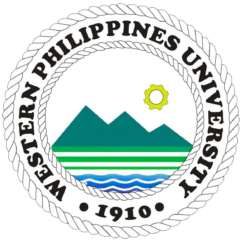![]()
Authors:
Riza G. San Juan1*, John Roderick V. Madarcos1, Lota A. Creencia1 and Floredel D. Galon2
1 College of Fisheries and Aquatic Sciences, Western Philippines University, Sta. Monica, Puerto Princesa City
2 Marine Science Research Center, College of Sciences, Palawan State University, Tiniguiban, Puerto Princesa City
*Correspondence: riz3san1@gmail.com
How to cite:
San Juan RG, Madarcos JRV, Creencia LA and Galon FD. 2023. Experiences and aspirations of seaweed farmers in Palawan, Philippines. The Palawan Scientist, 16 (1): 15-27.
ABSTRACT
Many coastal dwellers engage in seaweed farming despite of various challenges because of its simple farming technology, low capital investment, and short cultivation period. This paper explored the attitudes of seaweed farmers (n = 187) from nine coastal communities of Aborlan, Puerto Princesa, Roxas, and Taytay, Palawan towards the difficulties and challenges they experienced. The farmers’ experiences in seaweed farming, mid-term aspirations, and factors affecting their positive attitudes towards seaweed farming were gathered using a Likert-scale questionnaire in KoBoToolbox. Focused group discussion (FGD) sessions were also conducted to obtain more data about their optimistic attitudes. Participants are 55% male and 45% female. Results revealed that farmers had a high level of optimism toward seaweed farming. The majority (75%) ‘will continue to engage in planning the next cropping cycle’, most (89%) ‘are expecting to have a good harvest’, and almost all (96%) ‘are planning to generate raw dried seaweeds from their harvest.’ Many (59%) of the respondents obtained high earnings from seaweed farming, but most (93%) experienced economic losses. As recovery options, 92% aspired to culture other organisms such as sea cucumber and abalone. Further, most of them wanted to seek assistance from government offices (91%), participate in seaweed product development (86.5%), and join a cooperative (87.5%). This study could serve as baseline information in designing relevant training and educational activities to assist seaweed farmers in managing their farms sustainably. Subsequently, this could aid in formulating effective policies to address similar problems of seaweed farmers in other municipalities of Palawan.
Keywords: attitude, cooperative, cropping cycle, diseases, diversity, farming technology

This work is licensed under a Creative Commons Attribution-NonCommercial 4.0 International License
